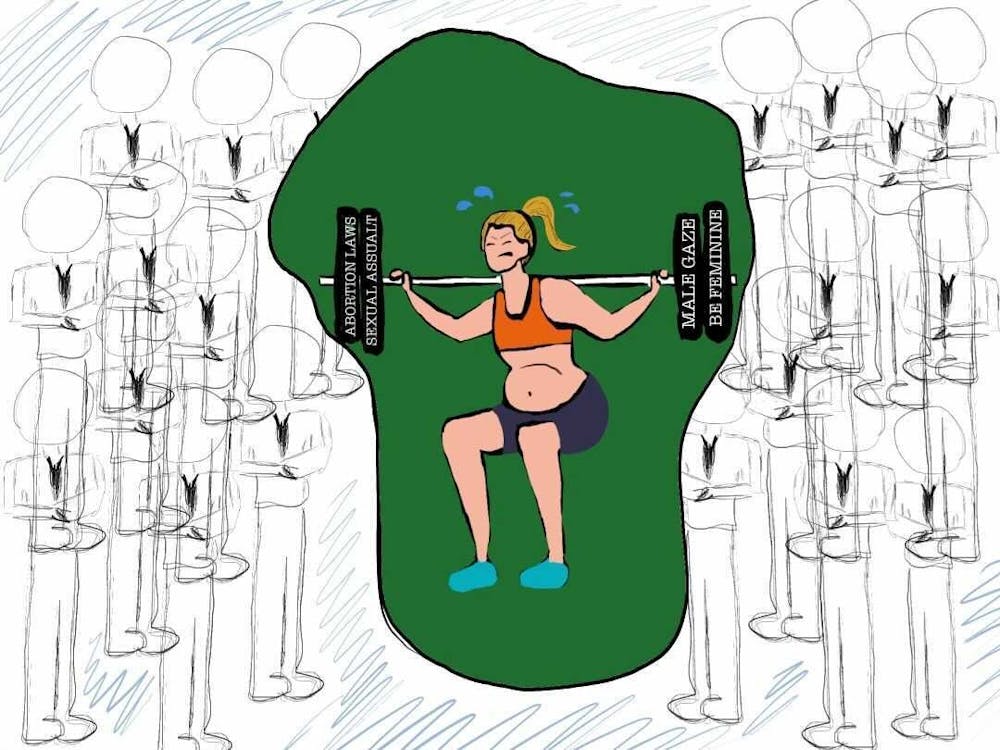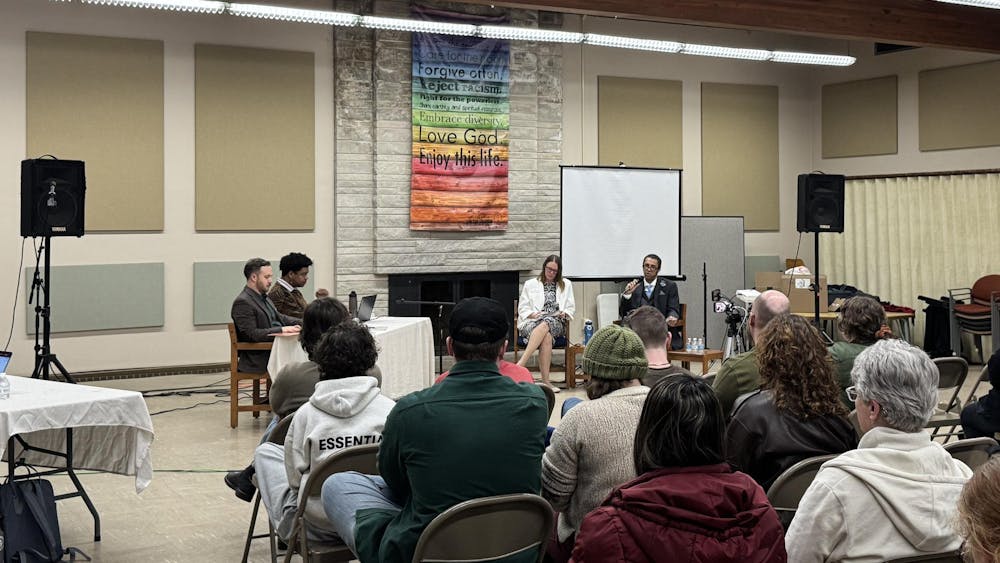From childhood, men are oftentimes expected to suppress their emotions and to be leaders, while women are expected to be submissive and emotional. This history of stereotypes is something that both genders have to carry throughout their daily lives.
The problem is both of these gendered stereotypes are damaging to society. As these gender traits are expected more and more, the economy on an international scale suffers.
Historically, when WWII forced American men to go to war, women stepped in and kept the economy running. Women are able to do the work but societal stereotypes often keep them from doing so. These stereotypes include assuming they should be stay-at-home mothers or should be kept out of leaderships positions.
Globally, the labor force participation rate for women is just under 47%, while men’s labor participation rate is at 72%. This 25% gap in the workforce means that society loses out on things like labor, tax revenue and purchasing power.
Being able to close the gender gap can increase economic output by an average of 35%. It’s strange to me that even with statistics like these, women within the workplace are still frowned upon by groups of people around the world. In 18 countries, husbands have the legal right to prevent their wives from working, while four countries still prohibit women from registering a company.
[Related: OPINION: Men, do better]
Providing adequate healthcare, education and child care is essential in the enabling of women with children to work. In Norway, the expansion and increased affordability of child care increased the likelihood of mothers’ employment.
Unfortunately, the economy struggles in having more women in the workforce because they face other problems in finding jobs. Businesses hesitate to hire women because of the perceived problem of additional costs and inconvenience made with the potential of maternity leave and other maternal responsibilities.
Other problems women face in the workforce include objectification, gender wage differences and societal beauty standards.
In 2022, there were unprecedented numbers of women leaving the workforce because of their leadership decisions being questioned constantly and because they faced microaggressions as a part of their daily life.
Acting and dressing a certain way can determine how a woman is perceived in the hiring process. Wearing heels and makeup is one way women express themselves. But, in the workplace, it has become something that defines a woman's work — reflecting the unnecessary and impossible beauty standards placed on women.
[Related: OPINION: Bloomington is not a progressive paradise]
So not only do women face the stereotype of being a stay-at-home mother, they also face the standard that they must act and look a certain way if they are to enter the workforce. These normalized discriminatory actions are harmful to the economy because it affects if women decide to deal with these constant and harmful ways that men perceive them. Sadly, the workplace environment can become too much to handle, and they end up quitting.
Gender wage differences are often talked about and have even begun to narrow over the years. However, a 2020 statistic shows women earned 83 cents for every dollar earned by men. Statistics such as this reflect the fact that women’s work is still considered to be less valuable than a man's.
Women are paid less because they are seen as less by men. Oftentimes their work is seen as less valuable especially if they don’t live up to the stereotypes held by society.
Women need to be heard when they speak up about workplace discrimination and the need for better child care. With further recognition of discriminatory actions toward women and placement of better child care, more jobs can be attainable and acceptable as a means of improving the economy on a global scale.
Carolyn Marshall (she/her) is a sophomore majoring in media studies with a focus in TV, digital and film production along with a minor in English.






